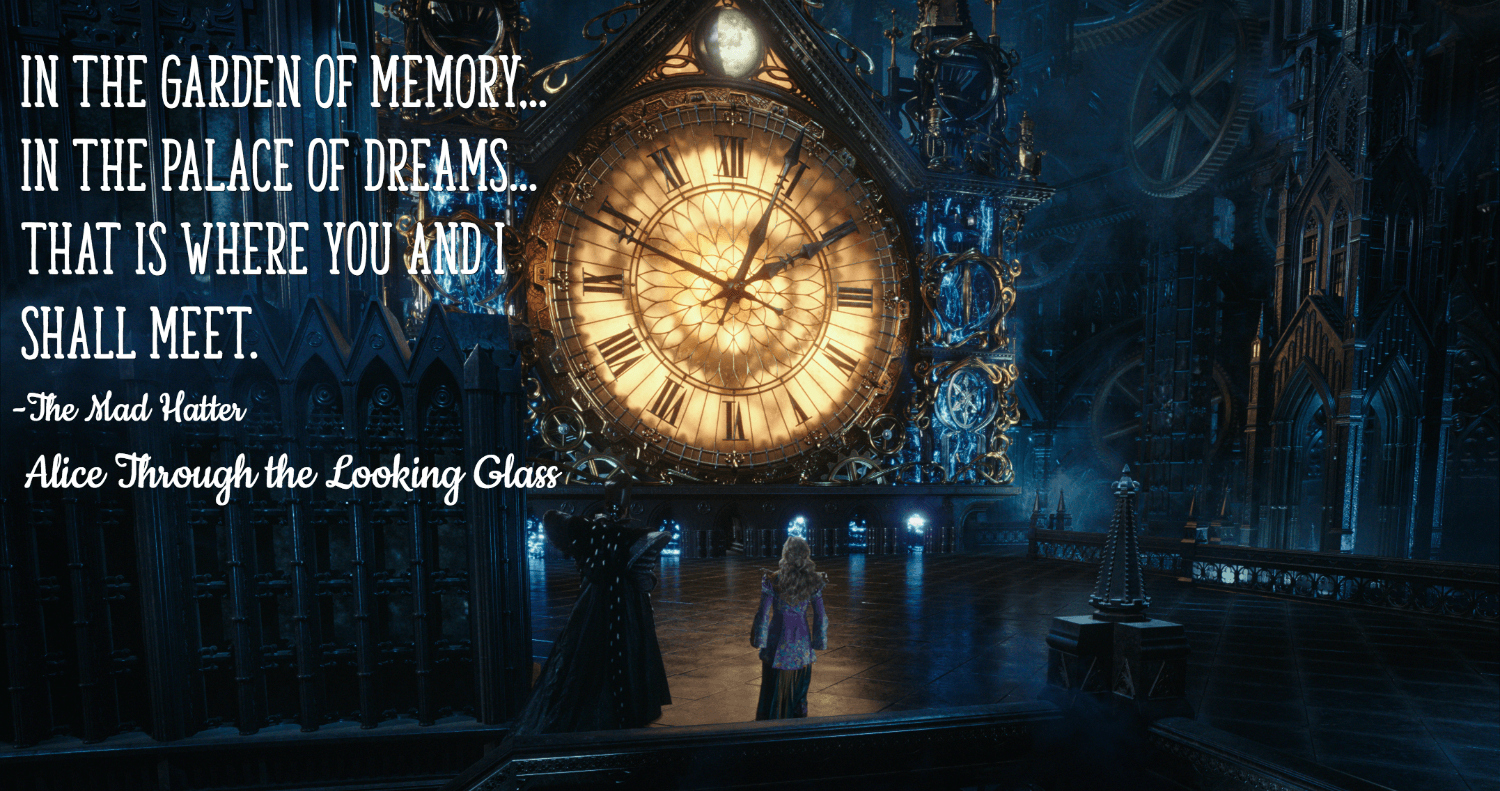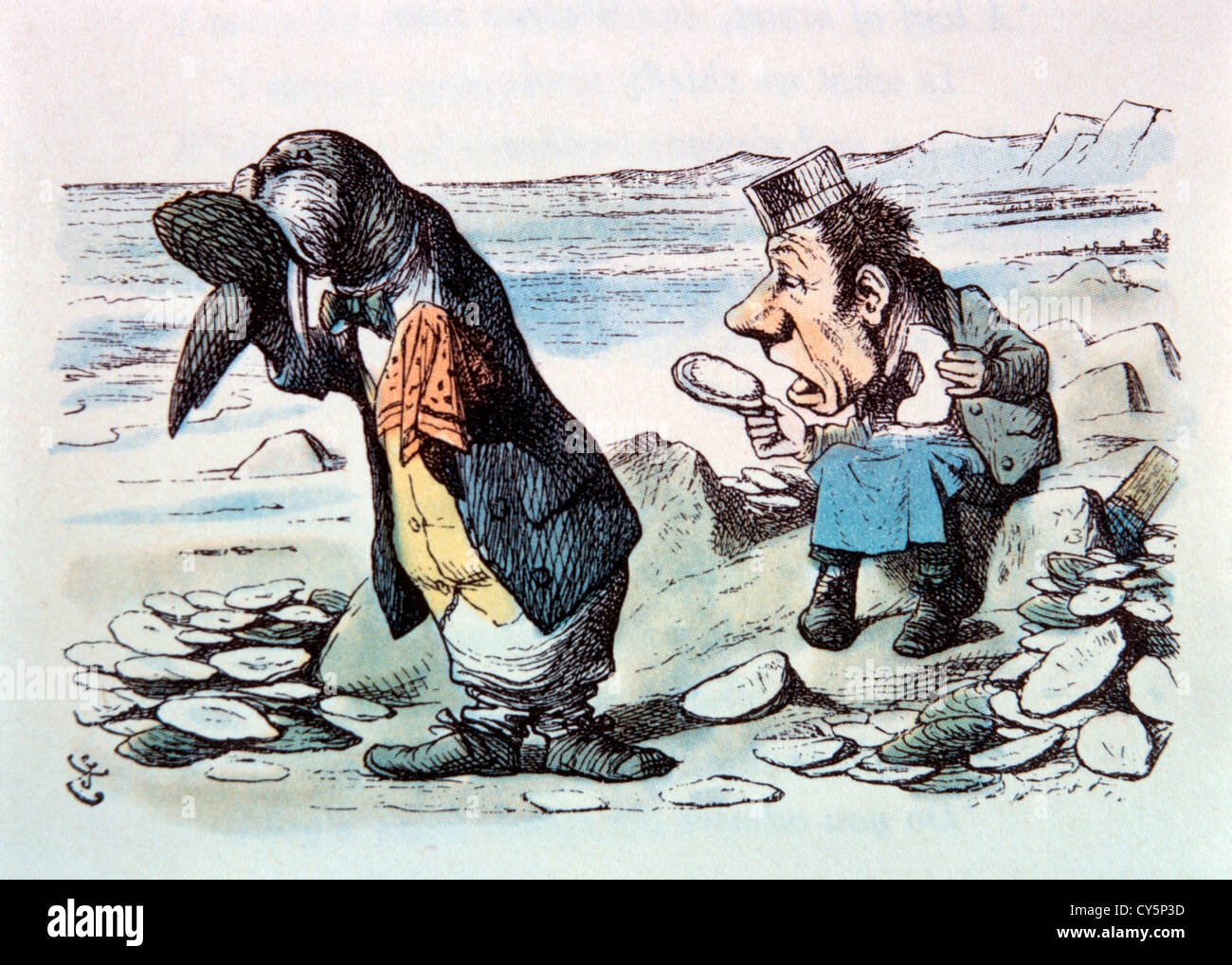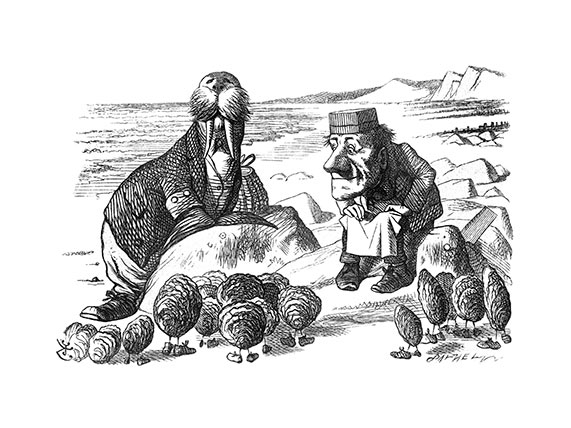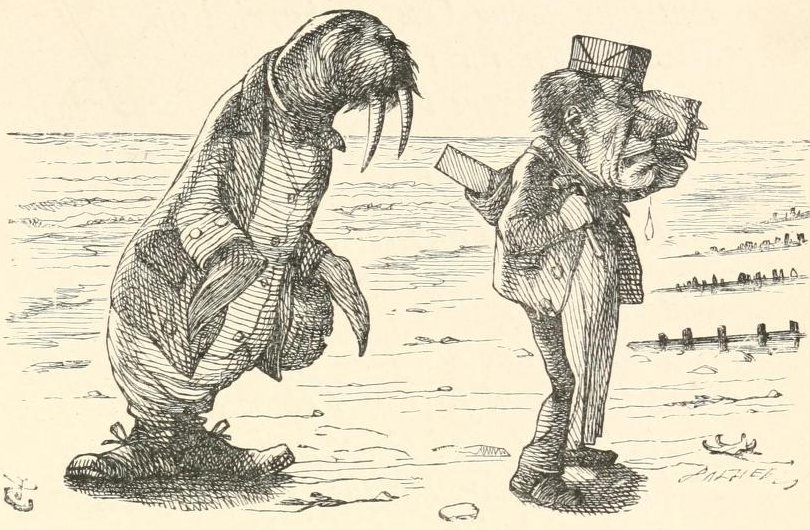The Prayer - Celine Dion & Andrea Bocelli (cover) by Genavieve
Featuring MY DADDY! (Nov 30, 2018)
Genavieve Linkowski - Hey guys! I thought it'd be cool
to bring my dad on here for a song... Didn't he kill it?!
by R.E. Slater
September 10, 2020
Eternity is a succession of moments
which always form a present
. . . . . . . .
Eternity will never be closer
Eternity is a succession of moments
which always form a present
. . . . . . . .
Eternity will never be closer
than it is right now at this moment
. . . . . . . .
. . . . . . . .
The meaning of eternity is held
in the tension of the present present
A tension inherited from the past
prehending and affecting a new novel present
Then as quickly this new tension of the present
projecting outwards prehending future possibilities
Virtual halograms, if you will, of future futures
prehended from past pasts and present presents
All in tension, all comprehending,
each to the other, along eternally present paths...
. . . . . . . .
The substance of eternity is something
in the tension of the present present
A tension inherited from the past
prehending and affecting a new novel present
Then as quickly this new tension of the present
projecting outwards prehending future possibilities
Virtual halograms, if you will, of future futures
prehended from past pasts and present presents
All in tension, all comprehending,
each to the other, along eternally present paths...
. . . . . . . .
The substance of eternity is something
which is always held in tension
The tension of the present affecting with the past -
and tension with the future expressing the present
Each temporal process subtending into the other -
eternal moments unfolding from one to the next
Unfolding, unending, ever concreascing...
for if the past prehends, the present concreasces
Coalescing together of parts once separate
increased by one becoming two
Vivacious processes bubbling, forming,
foaming, coming, going, merging, lifting...
Increased by one becoming two - then more,
ethereal effervescing concreasence here then gone
Concreascing processes thriving towards wellbeing
regenerating, healing, nourishing, unceasing...
for if the past prehends, the present concreasces
Coalescing together of parts once separate
increased by one becoming two
Vivacious processes bubbling, forming,
foaming, coming, going, merging, lifting...
Increased by one becoming two - then more,
ethereal effervescing concreasence here then gone
Concreascing processes thriving towards wellbeing
regenerating, healing, nourishing, unceasing...
. . . . . . . .
This is the promise of eternity,
To be... To become... To concreasce...
To be... To become... To concreasce...
An eternal hope filled with novel processing moments
each moment accreating into the next present moment
To then fly away in the same breath
To then fly away in the same breath
into a next moment of becoming...
This is the God-ness of divine
creative moments we feel together
Together as connective beings affecting, and being affected,
by other connective occasions and experiences
Occasions both actual and non-actual where all is possible -
Together as connective beings affecting, and being affected,
by other connective occasions and experiences
Occasions both actual and non-actual where all is possible -
against all that was, and wasn't, till it is, and was
. . . . . . . .
. . . . . . . .
An eternal process which births life from potentiality
putting to action past acceding momentary moments
Concreasing into fleeting present moments
Concreasing into fleeting present moments
accreating and concrescing into eternal presents
Over and over, again and again
life everlasting, life evermore...
. . . . . . . .
Eternity will never end because it it never started -
It is a continual process made up of the here and now.
Over and over, again and again
life everlasting, life evermore...
. . . . . . . .
Eternity will never end because it it never started -
It is a continual process made up of the here and now.
R.E. Slater
September 10, 2020
*dedicated to the process philosophy
of Alfred North Whitehead
September 10, 2020
*dedicated to the process philosophy
of Alfred North Whitehead
@copyright R.E. Slater Publications
all rights reserved
* * * * * * * * * * *



* * * * * * * * * * *
#hallelujah #duet #sisters



* * * * * * * * * * *
#hallelujah #duet #sisters
Hallelujah - Leonard Cohen (cover) by Genavieve
Featuring My SIS! (Jan 4, 2019)
Genavieve Linkowski - I thought it'd be fun to bring my sister
back for a cover, so we hope you enjoyed!
Comments
Rest in peace, Corinn. May you be the best singing angel God has.
May you rest in peace you sweet angel.
I'm so incredibly sorry that your sister is no longer
with us. I know she's somewhere smiling right now...
I believe God planned her last cover to be Hallelujah...
Me watching this after "I lost my sister"
Mom:Why are you crying?
Me: My eyes are sweating.
Me: Continues to cry
Rest in peace, Corinn. May you feel safe in the arms of Jesus.
I didn't know that that was Corinn till now. She had peace written
all over here face. And I'm just thinking how you will always have
these magical videos that you sang with her. What a blessing!
THIS is gorgeous. That lower harmony that Corrin sang
is just so rich and unusual, but so perfect. This is so good.

* * * * * * * * * * *
Ten Best Poems about Eternity,
Infinity and Immortality
‘Eternity’s a terrible thought’, as Tom Stoppard famously said. ‘I mean, where’s it all going to end?’ Poets have often dealt with the vast and limitless, the boundless and infinite – whether it’s the concept of the eternal (in time) or the idea of the infinite universe. Or, indeed, the idea of living forever. The ten poems we’ve gathered together below all address some aspect of the eternal or the infinite.
Robert Herrick, ‘Eternity’. This short poem from the Cavalier poet Robert Herrick (1591-1674) is short enough to be quoted in full here. The idea that life gives way to death, and death gives way to the ‘infinity’ that follows death, is summed up in this lyric:
O years! and age! farewell:
Behold I go,
Where I do know
Infinity to dwell.
And these mine eyes shall see
All times, how they
Are lost i’ th’ sea
Of vast eternity: –
Where never moon shall sway
The stars; but she,
And night, shall be
Drown’d in one endless day.


Alexander Pope, ‘Eloisa to Abelard’. This poem by the neoclassical poet Alexander Pope (1688-1744) earns its place on this list partly because of its most famous line, ‘The eternal sunshine of the spotless mind.’ The section of the poem in question runs:
How happy is the blameless vestal’s lot!
The world forgetting, by the world forgot.
Eternal sunshine of the spotless mind!
Each pray’r accepted, and each wish resign’d;
Labour and rest, that equal periods keep;
‘Obedient slumbers that can wake and weep …’
The poem as a whole, though, contains numerous references to the eternal. It’s a verse epistle (a letter told in heroic couplets) based on the medieval figures Héloïse d’Argenteui and her teacher, the French philosopher Peter Abelard, whom she secretly wedded.
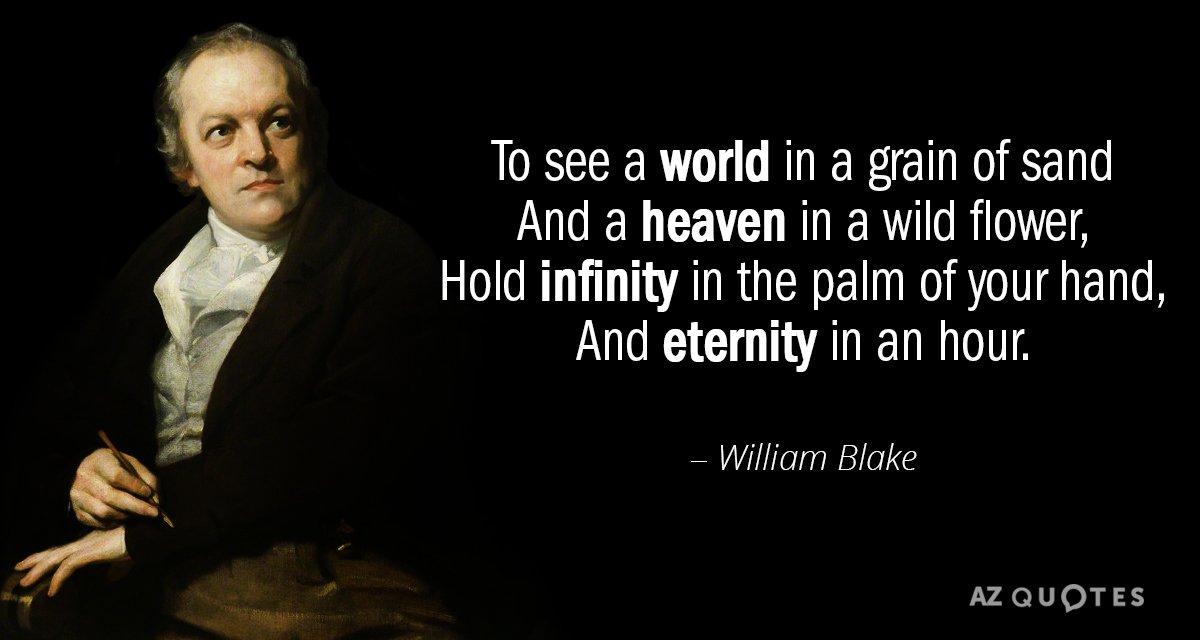

William Blake, ‘Eternity’. This short poem by the Romantic visionary poet William Blake (1757-1827) is short enough to be quoted here in full:
He who binds to himself a joy
Does the winged life destroy
He who kisses the joy as it flies
Lives in eternity’s sunrise.
The poem can be said to encapsulate Blake’s central moral tenets of freedom and selflessness, especially concerning the natural world.


William Wordsworth, ‘Ode: Intimations of Immortality’.
There was a time when meadow, grove, and stream,
The earth, and every common sight,
To me did seem
Apparelled in celestial light,
The glory and the freshness of a dream.
It is not now as it hath been of yore;—
Turn wheresoe’er I may,
By night or day.
The things which I have seen I now can see no more …
Philip Larkin once recalled hearing this poem recited on BBC radio, and having to pull over to the side of the road, as his eyes had filled with tears. It remains a powerful poetic meditation on death, the loss of childhood innocence, and the way we tend to get further away from ourselves – our true roots and our beliefs – as we grow older.


John Clare, ‘An Invite to Eternity’. Like Blake and Wordsworth, Clare was a Romantic poet. This haunting poem draws on the natural world for its imagery, but it’s an unnerving address from a strange male speaker to a ‘sweet maid’. He seems to be beckoning her into death, that ‘one eternity’ in which they will both be joined:
The land of shadows wilt thou trace
And look – nor know each other’s face
The present mixed with reasons gone
And past, and present all as one
Say maiden can thy life be led
To join the living to the dead
Then trace thy footsteps on with me
We’re wed to one eternity …
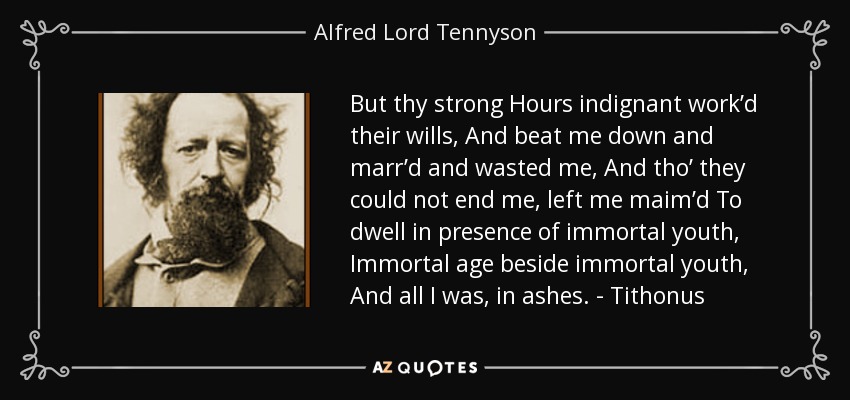
Alfred, Lord Tennyson, ‘Tithonus’. Described by the poet and critic William Empson as ‘a poem in favour of the human practice of dying’ because the poem exposes the horrific reality of what it would be like to live forever, ‘Tithonus’ is based on the Greek myth of Tithonos who was in love with Aurora, goddess of the dawn. Aurora asked the gods to make Tithonus immortal, so they could be together forever, but she forgot to ask for eternal youth; thus Tithonus was destined to get older and older with each passing year, while his lover remained young and beautiful. Tennyson wrote the poem in 1833, shortly after the death of his friend Arthur Hallam, but didn’t publish it until 27 years later.
‘Tithonus’ is not as famous as some of Alfred Lord Tennyson’s other dramatic monologues – ‘Ulysses’ enjoys considerably more popularity – but it is worth analysing because it offers something different from much other poetry.
The woods decay, the woods decay and fall,
The vapours weep their burthen to the ground,
Man comes and tills the field and lies beneath,
And after many a summer dies the swan.
Me only cruel immortality
Consumes: I wither slowly in thine arms,
Here at the quiet limit of the world,
A white-hair’d shadow roaming like a dream
The ever-silent spaces of the East,
Far-folded mists, and gleaming halls of morn.
Alas! for this gray shadow, once a man—
So glorious in his beauty and thy choice,
Who madest him thy chosen, that he seem’d
To his great heart none other than a God!
I ask’d thee, ‘Give me immortality.’
Then didst thou grant mine asking with a smile,
Like wealthy men, who care not how they give.
But thy strong Hours indignant work’d their wills,
And beat me down and marr’d and wasted me.
And tho’ they could not end me, left me maim’d
To dwell in presence of immortal youth,
Immortal age beside immortal youth,
And all I was, in ashes. Can thy love,
Thy beauty, make amends, tho’ even now,
Close over us, the silver star, thy guide,
Shines in those tremulous eyes that fill with tears
To hear me? Let me go: take back thy gift:
Why should a man desire in any way
To vary from the kindly race of men
Or pass beyond the goal of ordinance
Where all should pause, as is most meet for all?
A soft air fans the cloud apart; there comes
A glimpse of that dark world where I was born.
Once more the old mysterious glimmer steals
From thy pure brows, and from thy shoulders pure,
And bosom beating with a heart renew’d.
Thy cheek begins to redden thro’ the gloom,
Thy sweet eyes brighten slowly close to mine,
Ere yet they blind the stars, and the wild team
Which love thee, yearning for thy yoke, arise,
And shake the darkness from their loosen’d manes,
And beat the twilight into flakes of fire.
Lo! ever thus thou growest beautiful
In silence, then before thine answer given
Departest, and thy tears are on my cheek.
Why wilt thou ever scare me with thy tears,
And make me tremble lest a saying learnt,
In days far-off, on that dark earth, be true?
‘The Gods themselves cannot recall their gifts.’
Ay me! ay me! with what another heart
In days far-off, and with what other eyes
I used to watch—if I be he that watch’d—
The lucid outline forming round thee; saw
The dim curls kindle into sunny rings;
Changed with thy mystic change, and felt my blood
Glow with the glow that slowly crimson’d all
Thy presence and thy portals, while I lay,
Mouth, forehead, eyelids, growing dewy-warm
With kisses balmier than half-opening buds
Of April, and could hear the lips that kiss’d
Whispering I knew not what of wild and sweet,
Like that strange song I heard Apollo sing,
While Ilion like a mist rose into towers.
Yet hold me not for ever in thine East:
How can my nature longer mix with thine?
Coldly thy rosy shadows bathe me, cold
Are all thy lights, and cold my wrinkled feet
Upon thy glimmering thresholds, when the steam
Floats up from those dim fields about the homes
Of happy men that have the power to die,
And grassy barrows of the happier dead.
Release me, and restore me to the ground;
Thou seëst all things, thou wilt see my grave:
Thou wilt renew thy beauty morn by morn;
I earth in earth forget these empty courts,
And thee returning on thy silver wheels.


Emily Dickinson, ‘Forever – Is Composed of Nows’.
Forever – is composed of Nows –
’Tis not a different time –
Except for Infiniteness –
And Latitude of Home –
From this – experienced Here –
Remove the Dates – to These –
Let Months dissolve in further Months –
And Years – exhale in Years …
So begins this poem from Dickinson, which sees eternity as a succession of moments, which always form the present. It’s as if Dickinson is answering Stoppard’s question from the top of this blog post, before he’d even asked it, with the response: ‘eternity will never end because it never starts – it’s a continual process made up of the here and now’.
Arthur Rimbaud, ‘Eternity’. In this poem about eternity, the precocious French poet of the nineteenth century likens eternity to the sea that had ‘fled away’ with the sun.
Eternity
It has been found again.
What? – Eternity.
It is the sea fled away
With the sun.
Sentinel soul,
Let us whisper the confession
Of the night full of nothingness
And the day on fire.
From humain approbation,
From common urges
You diverge here
And fly off as you may.
Since from you alone,
Satiny embers,
Duty breathes
Without anyone saying: at last.
Here is no hope,
No orietur.
Knowledge and fortitude,
Torture is certain.
It has been found again.
What? – Eternity.
It is the sea fled away
With the sun.
May 1872


T. S. Eliot, ‘Whispers of Immortality’. One of Eliot’s quatrain poems, this one is effectively in two halves: the first half discusses the Jacobean playwright John Webster and his contemporary, the poet John Donne, and how both understood the mortality that lies just under the living do. The second half focuses on the allures of a woman, Grishkin, whose large ‘bust’ promises ‘pneumatic bliss’. This juxtaposition (arguably) serves to underline that Webster and Donne were right: our physical desires are purely motivated by our (often subliminal) knowledge that we will not live forever.
Webster was much possessed by death
And saw the skull beneath the skin;
And breastless creatures under ground
Leaned backward with a lipless grin.
Daffodil bulbs instead of balls
Stared from the sockets of the eyes!
He knew that thought clings round dead limbs
Tightening its lusts and luxuries.
Donne, I suppose, was such another
Who found no substitute for sense,
To seize and clutch and penetrate;
Expert beyond experience,
He knew the anguish of the marrow
The ague of the skeleton;
No contact possible to flesh
Allayed the fever of the bone.
. . . . .
Grishkin is nice: her Russian eye
Is underlined for emphasis;
Uncorseted, her friendly bust
Gives promise of pneumatic bliss.
The couched Brazilian jaguar
Compels the scampering marmoset
With subtle effluence of cat;
Grishkin has a maisonnette;
The sleek Brazilian jaguar
Does not in its arboreal gloom
Distil so rank a feline smell
As Grishkin in a drawing-room.
And even the Abstract Entities
Circumambulate her charm;
But our lot crawls between dry ribs
To keep our metaphysics warm.
1918, 1919


Sarah Howe, ‘Relativity’. Howe wrote this poem about scientific ideas – specifically relating to Einstein’s General Theory of Relativity and its impact on subsequent physics – and read it to Stephen Hawking, to whom the poem is dedicated. Although it doesn’t explicitly mention infinity, the scope of Howe’s poem is universal in the most literal sense of that word. It’s beautiful, moving, and shows that science continues to inspire some of the finest poetry.
Relativity
for Stephen Hawking
When we wake up brushed by panic in the dark
our pupils grope for the shape of things we know.
Photons loosed from slits like greyhounds at the track
reveal light’s doubleness in their cast shadows
that stripe a dimmed lab’s wall—particles no more—
and with a wave bid all certainties goodbye.
For what’s sure in a universe that dopplers
away like a siren’s midnight cry? They say
a flash seen from on and off a hurtling train
will explain why time dilates like a perfect
afternoon; predicts black holes where parallel lines
will meet, whose stark horizon even starlight,
bent in its tracks, can’t resist. If we can think
this far, might not our eyes adjust to the dark?
Sarah Howe’s Loop of Jade was shortlisted for the Forward Prize for Best First Collection. She is a Fellow at Harvard University’s Radcliffe Institute.





